Di Zang Jing First Grade
When the Buddha was preaching the Dharma to his mother in the Heavenly Palace of Trayastrimsha, countless Buddhas and bodhisattvas from all directions, as well
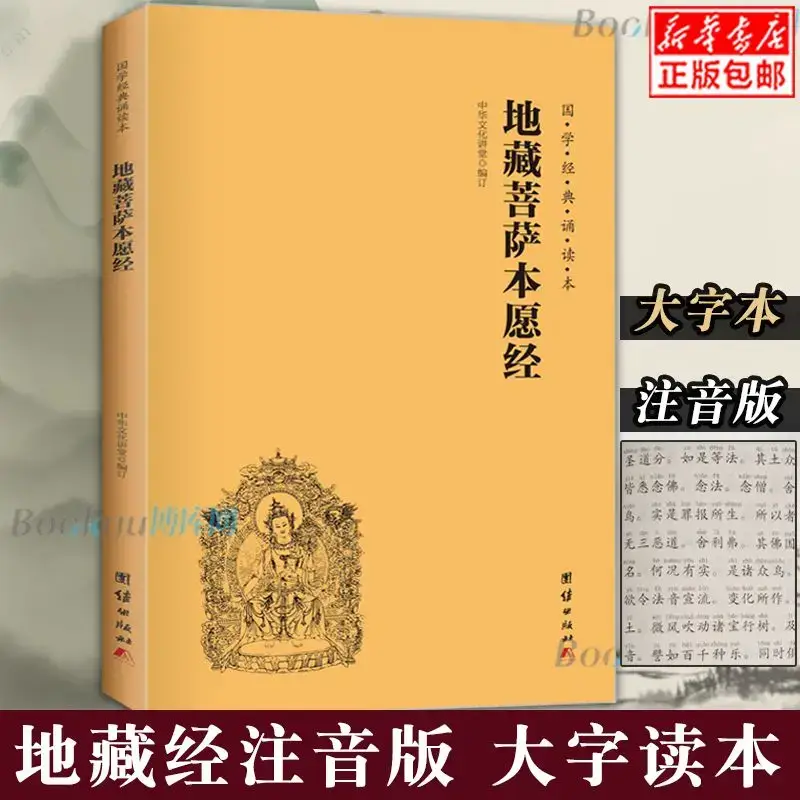
The “Di zang jing” is a principal Buddhist scripture. In the 7th century BC, the eminent monk Shijianantuo of the Tang Dynasty translated the Sanskrit version of the Ksitigarbha Sutra into Chinese. It mainly narrates the following:
1. The hellish retribution that sentient beings experience due to their actions, speech, and thoughts (such as killing, sexual misconduct, and slandering the Three Jewels).
2. This is the Buddhist Classic of Filial Piety. Through the stories of the Brahmin woman and the woman with bright eyes saving their mothers, it highlights that the merit of filial piety can benefit the deceased.
3. By chanting the name of Ksitigarbha, creating statues or paintings of him, and reciting the sutra as an offering, one can eliminate disasters and increase blessings.
4. Hearing the name of Ksitigarbha at the time of death, or having relatives perform meritorious deeds on one’s behalf, can eliminate grave sins.
Centered on “filial piety” and “great vows,” the sutra advocates that sentient beings cease evil and practice good, relying on the vow power of Ksitigarbha Bodhisattva to be liberated from suffering and ultimately attain enlightenment. Read more chinese di zang jing.
The Causal World disseminates the concept of karmic retribution from the di zang jing helping people to believe in karma and Buddhist teachings. It opens up wisdom and brings health, wealth, happiness, peace, smoothness, and so on in life.

The Di Zang Wang Pu Sa is a great Bodhisattva with immense vows. With his boundless compassion and vow power, he specifically saves the most suffering beings from the hells and the six realms of existence.
1. The Bodhisattva King of the Underworld, also known as “Di Zang Wang Pu Sa,” has the Sanskrit name Kṣitigarbha.
2. The grand vow: “I will not attain Buddhahood until all the hells are empty; I will not reach enlightenment until all beings are saved.”
3. He is dedicated to rescuing the most suffering beings from the hells and the six realms of existence.
4. Di Zang is celebrated alongside Avalokiteśvara, Mañjuśrī, and Samantabhadra as one of the “Four Great Bodhisattva Spirits.”
After the parinirvana of Shakyamuni Buddha and before the emergence of Maitreya Buddha, he helps sentient beings, serving as the Dharma protector and guide for beings in the six realms of existence.
1. Buddha preaches the Dharma in Trayastrimsha Heaven, surrounded by Buddhas and Bodhisattvas from all directions gathering to praise.
2. Ksitigarbha Bodhisattva vows to save sentient beings.
3. Buddha manifests supernatural power through light and sound to highlight Ksitigarbha’s majesty.
4. Ksitigarbha Bodhisattva has been liberating sentient beings across countless eons. Those saved, being saved, and yet to be saved are all connected to his vow power.
Ksitigarbha Bodhisattva’s innumerable manifestations come from the hells and evil paths to save sentient beings and gather in the Heavenly Palace of Trayastrimsha. The Buddha places his hand on Ksitigarbha’s head and entrusts him to widely liberate sentient beings in the Saha world before Maitreya becomes a Buddha. Ksitigarbha Bodhisattva’s “manifestations pervade hundreds of millions of worlds,” teaching and transforming stubborn sentient beings.
Queen Maya asks about the retributions of hell, and Ksitigarbha Bodhisattva explains in detail the karmic results of the actions of sentient beings in Jambudvipa, such as disrespecting parents, killing, and sexual misconduct, which inevitably lead to the Avici hell. The suffering of the five Avici hells and the five meanings of “Avici” (no interval in time, no interval in form, no interval in instruments of punishment, no interval in equality, no interval in life and death).
When Ksitigarbha Bodhisattva was a Brahmin woman and a woman with bright eyes in previous lives, he made great vows to save his mother, eventually freeing her from the suffering of hell. Karma is not illusory, “the power of karma is great, it can rival Mount Sumeru,” but Ksitigarbha’s vow power can transform karma.
Samantabhadra Bodhisattva asks about the names of the hells, and Ksitigarbha Bodhisattva describes in detail the suffering of the great hells such as Avici and Aparapiyana, as well as hundreds of smaller hells. The hells are caused by the power of karma, “the result of evil habits, with thousands of retributions.”
The Buddha praises the majestic power of Ksitigarbha Bodhisattva, and speaks of the merits of offering to the image of Ksitigarbha and reciting the sutras, which can eliminate karmic obstacles and increase blessings and wisdom. Hearing the name of Ksitigarbha at the time of death will not lead to rebirth in the evil paths, and creating or painting the image of Ksitigarbha will result in “being reborn in the Trayastrimsha Heaven a hundred times.”
The importance of cultivating blessings at the time of death, killing for sacrifices will increase the sins of the deceased, one should recite the Buddha’s name, offer to the monastics, and recite the sutras for the liberation of the deceased. “On the day of death, be careful not to kill,” cultivating good deeds for the deceased within the first forty-nine days is most beneficial.
The King of Hell and the ghost kings describe how the bad habits of sentient beings are difficult to change, and Ksitigarbha Bodhisattva tirelessly teaches and transforms them. The ghost kings protect those who recite the Buddha’s name and offer to the image, freeing them from sudden illnesses and calamities.
Ksitigarbha Bodhisattva speaks of the merits of reciting the Buddha’s name (such as the Tathagata with Boundless Body and the Tathagata with Precious Victory), which can eliminate heavy sins and lead to rebirth in the Pure Land. A single Buddha’s name “once heard by the ear, forever becomes the seed of the path.”
The size of the merit of giving depends on the mind, giving with a humble and smiling heart is the best, and repairing pagodas and images brings boundless blessings. “Give one and get ten thousand in return,” the greatest merit is to dedicate to the Dharma realm.
The Earth Deity, Firm and Steady, vows to protect those who offer to Ksitigarbha Bodhisattva, making their land fertile and their homes ever peaceful. Offering to the image of Ksitigarbha brings “ten kinds of benefits,” such as abundant clothing and food, and freedom from calamities.
The Buddha emits light and speaks of the benefits of seeing, hearing, and paying respects to Ksitigarbha Bodhisattva in this life, such as eliminating illness, avoiding disasters, and increasing blessings and longevity. Reciting the name of Ksitigarbha ten thousand times, “unfortunate matters gradually disappear.”
The Buddha entrusts the sentient beings of the Dharma-ending Age to Ksitigarbha Bodhisattva, and instructs humans and deities to protect this sutra. Ksitigarbha Bodhisattva promises “until the hells are empty, I vow not to become a Buddha,” and all sentient beings who have a single thought of reverence are saved.
We promote Mahayana Buddhism and give away Buddhist scriptures for free to those in need. If you need a Buddhist scripture, please buy it for $0.1 .


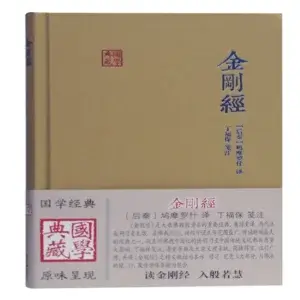
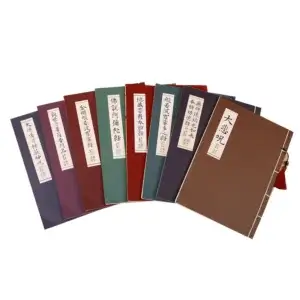
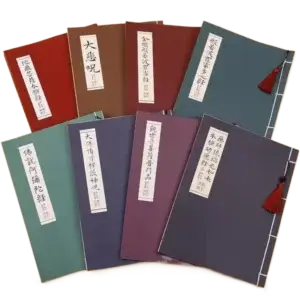
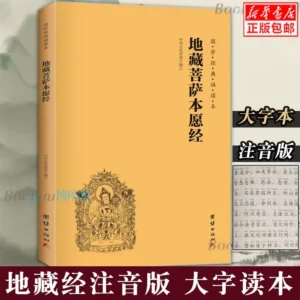

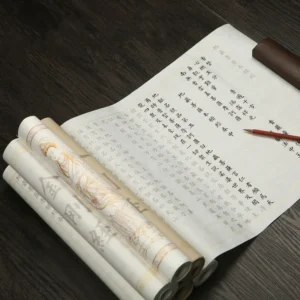
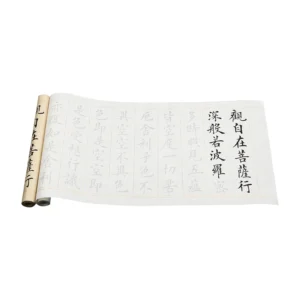

The di zang jing mantra is a supreme Buddhist esoteric mantra.
This mantra originates from the great vow power of Ksitigarbha Bodhisattva and can eliminate disasters, pray for blessings, increase wisdom, purify the mind, and bring peace to the body and mind. Learn more

Di zhang wang,Known as the “Bodhisattva King Ksitigarbha of Great Vows,” based on the “Sutra of the Past Vows of Ksitigarbha Bodhisattva” and the six Dharma manifestations for saving beings in the six realms.
He has manifested many times in past lives to fulfill his great vow: not to attain Buddhahood until all beings are saved, and not to become a Buddha while hell is not empty, 眾生度盡,方證菩提;地獄不空,誓不成佛. Learn more
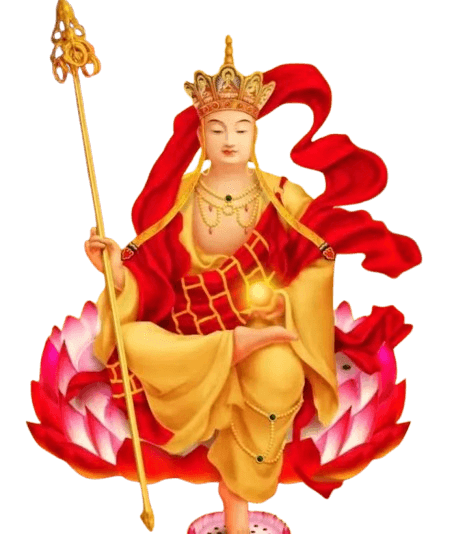
According to the “Sutra of the Past Vows of di zang wang pu sa” and related Buddhist traditions, the birthday of Ksitigarbha Bodhisattva is:
1. The last day of the seventh lunar month in China.
2. If the month does not have a thirtieth day, it is the twenty-ninth.
3. This day is called the “Ksitigarbha Festival.” It originates from the extraordinary vows and virtues of Ksitigarbha Bodhisattva to save sentient beings.
Devotees often recite scriptures, make offerings, and chant the name of the Bodhisattva on this day, dedicating the merits to all beings in the six realms, in accordance with the great vow of Ksitigarbha Bodhisattva, “I vow not to become a Buddha until the hells are empty.”.
Gong Feng to Buddha and Pu Sa of Mahayana Buddhism in this virtual temple. Promote Mahayana Buddhism and save people as fate dictates. Bodhisattvas fear the cause. All living beings are afraid of consequences. There is no way for blessing or misfortune. Only people recruit themselves. Know cause and effect. Cut off evil and cultivate good. Don’t do any evil. Do good deeds.

Shi Jia Mo Ni Buddha, originally named Siddhartha Gautama, was a member of the ancient Indian Sakya tribe and the founder of Buddhism. He attained enlightenment under a bodhi tree at the age of 35 and became a Buddha, and then preached in northern and central India.

A Mi Tuo Fo, in Sanskrit Amitābha, means "Buddha of Infinite Light" or "Buddha of Infinite Life", is the leader of the Western Paradise in Buddhism. He made forty-eight great vows to save all living beings and achieve infinite merits.

Mi Le Fo, in Sanskrit Maitreya, is the future Buddha in Buddhism. It is said that he will come to the world 5.67 billion years after the death of Buddha Shakyamuni, become the next Buddha, and teach all living beings.

DiZang Wang Bodhisattva, in Sanskrit Kṣitigarbha, is one of the four great bodhisattvas in Buddhism. He made a great vow that: Hell is not empty. I vow not to become a Buddha. All sentient beings are saved. Only then can you prove Bodhi.

Guan Yin Bodhisattva, whose Sanskrit name is Avalokiteśvara, which means "observing the sounds of the world", is a bodhisattva of great compassion in Buddhism. He is the left attendant of Amitabha Buddha, and is known as the "Three Holy Ones of the West" together with Mahasthamaprapta Bodhisattva.

Yao Shi Fo Buddha, whose Sanskrit name is Bhaiṣajyaguru, means "Medicine Master Lapis Lazuli Light Tathagata", is the leader of the Eastern Pure Lapis Lazuli World of Buddhism. He made twelve great vows to relieve the diseases and sufferings of sentient beings and bring them peace and health.
I was born in a small mountain village in western China.
We have the world’s most primitive Mahayana Buddhist cave carvings here, which are listed as a World Heritage Site by UNESCO.
When I was a child,I lived with my grandmother.On the first and fifteenth days of the Chinese lunar month,we would bring a small bag of rice and go to the Buddhist temple in the small mountain village to have vegetarian meals.We would burn incense,worship the Buddha,and pray for blessings.
Offering to Dizang Wang Pu Sha Mahasattva, majoring in the Ksitigarbha Sutra, Dizang Pu Sha gave me great help. Helped me cure my illness and restore my health. Helped me find a good job. Helped me get a wishful baby. Thank you Dizang Wang Pu Sha. Follow Dizang Wang Pu Sha to help sentient beings and save those who are predestined. The Dazu Rock Carvings in Chongqing.
Promote Mahayana Buddhist knowledge and the law of cause and effect. Help people understand Buddhism and the law of cause and effect.
When the Buddha was preaching the Dharma to his mother in the Heavenly Palace of Trayastrimsha, countless Buddhas and bodhisattvas from all directions, as well
The Sutra of the Original Vow of Ksitigarbha Bodhisattva, or the Sutra of the Original Vow of Ksitigarbha Bodhisattva for short, is one of the
Ksitigarbha Bodhisattva is revered for his great vow to save all beings from suffering. His name and stories inspire countless devotees. The Meaning of Ksitigarbha
Buddhism has many great bodhisattvas, but Ksitigarbha Bodhisattva is renowned for his vow, “As long as there is a single being in hell, I will
The Sanskrit Mantra of Jizo Bodhisattva is a supreme Buddhist secret mantra, which has the effect of eliminating disasters and praying for blessings, increasing wisdom
The phrase “Namo dizang wang pusa” is a term of respect for Jizo Wang Bodhisattvas, meaning “to Jizo Wang Bodhisattvas”. This phrase expresses a believer’s
Subscribe to us, learn Mahayana Buddhism, know the law of cause and effect, and help others together.
